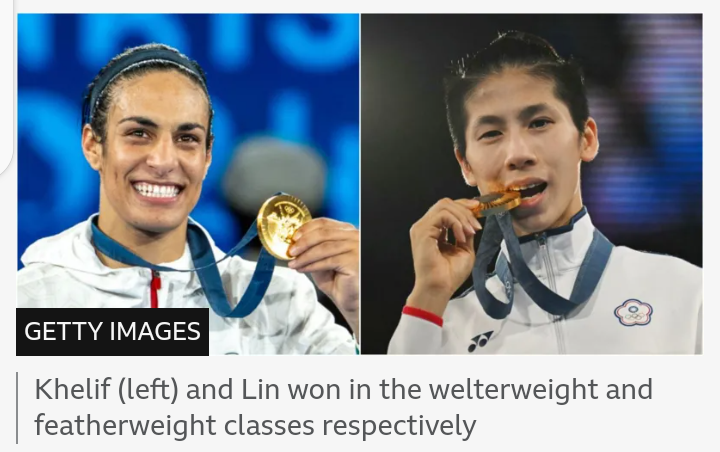Olympic Boxing Row Highlights IOC’s Struggles with Gender and Eligibility Rules.
The International Olympic Committee (IOC) is once again facing intense scrutiny over its handling of gender and eligibility rules in Olympic sports, particularly in the wake of a controversy surrounding two female boxers, Algeria’s Imane Khelif and Taiwan’s Lin Yu-ting, at the Paris 2024 Games.
The row began after the International Boxing Association (IBA) raised questions about the legitimacy of both athletes’ eligibility to compete in the women’s category, sparking a wave of criticism and debate. The IOC, which currently oversees Olympic boxing due to an ongoing dispute with the IBA, questioned the timing and credibility of the IBA’s testing procedures. The IOC pointed out that the tests were conducted after the athletes had competed for years without such scrutiny, further casting doubt on the results.
This incident has intensified the debate over the IOC’s policies regarding sex eligibility, particularly as several other sports federations have tightened their rules, banning transgender women from elite female competition and requiring athletes with differences in sex development (DSD) to medically lower their testosterone levels. The IOC’s current rules have not kept pace with these changes, leading to calls for stricter regulations to protect the integrity of women’s sports.
IOC President Thomas Bach has acknowledged the complexity of the issue, stating that it is not as simple as defining athletes by their XX or XY chromosomes. He expressed openness to adopting a new system if one that is scientifically solid is presented, but emphasised the difficulty in balancing inclusivity, fairness, and safety in sport.
The controversy has also reignited demands for mandatory sex testing at future Olympics, with some campaigners calling for the return of the cheek swab test, which the IOC abandoned in 2000. However, others argue that more comprehensive testing is necessary to accurately determine an individual’s genetic makeup, though this raises concerns over cost and the invasiveness of such procedures.
As the debate rages on, Khelif and Lin, who both secured gold medals in their respective categories, have become the focus of global attention. Despite their victories, the athletes face ongoing speculation about their eligibility and the future of their careers, especially with the IBA remaining the de facto governing body for amateur boxing.
The broader impact of this controversy on the Olympics is significant, with the issue dominating media coverage and leading to a surge of online abuse directed at the athletes. The IOC has condemned the “hate speech, aggression, and abuse” that has emerged from the debate, describing it as part of a politically motivated culture war.
In the aftermath, Khelif has filed a legal case against what her lawyer has described as “misogynistic, racist, and sexist” cyberbullying, claiming she has been the victim of a “digital lynching.” Meanwhile, the IOC continues to grapple with the challenge of developing fair and inclusive eligibility rules that can withstand the scrutiny of both the public and the international sports community.
As the sport of boxing—and the Olympic movement as a whole—navigates these turbulent waters, the resolution of these issues will likely shape the future of gender regulations in sports for years to come.



